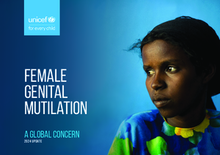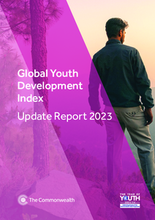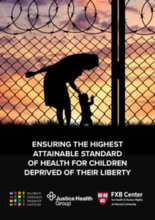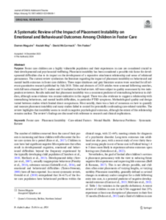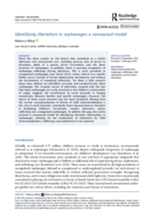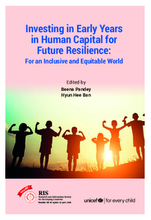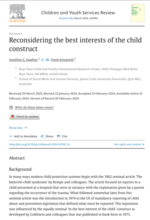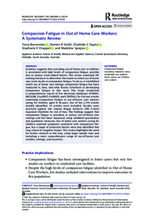Displaying 71 - 80 of 1343
This report provides an updated data-driven assessment of female genital mutilation (FGM) around the world. It narrates through numbers the stories of millions of girls and women who have survived the practice and the millions more who remain at risk.
The survey of the COVID-19 outbreak focused on studying the impact and long-term consequences on care leavers, especially residential care leavers who are living independently.
This 2023 update report is published during the Commonwealth Year of Youth and for the 50th anniversary of the Commonwealth Youth Programme and will support policy-makers, governments and the public to reflect on progress made over more than a decade and to develop new strategies for strengthening the enabling environment for youth empowerment.
This book looks at major macro trends affecting children as well as interventions that have been used to address problems that children face. Topics that are addressed include the UN Convention on Children, Non-Governmental Organizations (NGOs) that support children, and development issues like pre and post-natal health, family systems, gender roles, and puberty/adolescent issues. Attention is given to major risk factors and challenges such as sex trafficking, child labor, street children, protecting children in congregate care, and violence against children in the home, in institutions, and in the community.
The aim of the report is to identify gaps in the system and assist the United Nations Task Force (UNTF) in its efforts to support the implementation of the UN Convention on the Rights of the Child (UNCRC) and ensure that all children, including those deprived of their liberty in all settings, achieve the highest attainable standard of health. This report has drawn on the expertise and insights of a broad group of collaborators including members of the United Nations Task Force on the Implementation of the Global Study on Children Deprived of their Liberty.
The current review synthesizes the literature regarding the impact of placement instability on behavioural and mental health outcomes in foster care children. Three major databases and grey literature sources were searched for all relevant quantitative research published by July 2019.
This article presents a conceptual model for identifying clientelist relationships in orphanages, allowing for the implications of clientelism for child institutionalisation, trafficking, and exploitation to be explored.
This book focuses on the urgent need for global investments in young children for realizing sustainable development and equitable outcomes for all. Access to services and participation, equity and inclusion are key drivers to realize the rights of the child.
This article provides an overview of criticisms of the best interests construct and suggestions that the construct is a dated view about what is in a child’s best interests. There is a need for a new balance between explanations about child abuse and neglect (CAN) that takes account of poverty, social disadvantage, and the interests of children and their families.
Evidence suggests that providing out-of-home care to children is associated with high levels of compassion fatigue, possibly due to various work-related factors. This global systematic review examined the existing literature to determine the extent to which out of home care work results in compassion fatigue. To do so, it established which out of home care settings compassion fatigue has been measured in, how, and what factors contribute to developing compassion fatigue in this work.

